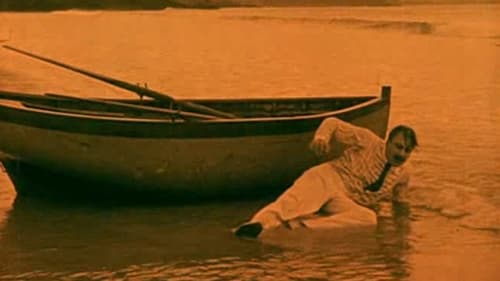Les Misérables (1912)
Genre :
Runtime : 2H 43M
Director : Albert Capellani
Synopsis
Directed by Albert Capellani.

A short documentary clip released by Pathé Frères.

A train arriving at Vincennes station.

People dismount and mount a gondola.

A drunken man gets into a fight with everyone he meets.
![Sortie d'usine, [IV]](https://moviedb.kr/index.php/image/w500/yARDUQx4Ltrel6jZpkQklnyuUv2.jpg)
Workers leaving the Lumière factory.

Count Fernand De Keramic plots against his niece in order to acquire her wealth to pay his debts.

The young daughter of an army captain missing in action runs away from school and is kidnapped by Parisian lowlifes. When the kidnapper flees to Nice with the child, the kind-hearted employee of one of his accomplices sets off in pursuit.

Maître Labori is seen approaching the bridge of Rennes in company with Colonel Picquart and M. Gast, Mayor of Rennes. They notice that they are followed by another man to whom Colonel Picquart calls Labori's attention. They, however, consider his proximity of no importance, and continue to speak together. As soon as their backs are turned, the man draws a revolver and fires twice at Maître Labori, who is seen to fall to the ground. The culprit makes his escape, pursued by Colonel Picquart and M. Gast.

The infamous Dreyfus is finally brought before a court martial.

A reenactment of a scene inside Devil's Island prison.

Showing room at the military prison at Rennes in which Dreyfus the accused is confined. He is visited by his counsel, Maître Labori and Demange, with whom he is seen in animated conversation. A visit from his wife is announced, who enters. The meeting of the husband and wife is most pathetic and emotional.

A section of the port Haliquen (Quiberon) Bretagne, at night where Dreyfus was landed by French marines, and officers after his transport from Devil's Island. He is received by the French authorities, officers, and gendarmes, and conducted to the station for his departure to Rennes. This little scene was enacted on a dark rainy night, which is clearly shown in the film. The effects are further heightened by vivid flashes of lightning which are certainly new in cinematography.

A gardener is watering his flowers, when a mischievous boy sneaks up behind his back, and puts a foot on the water hose. The gardener is surprised and looks into the nozzle to find out why the water has stopped coming. The boy then lifts his foot from the hose, whereby the water squirts up in the gardener's face. The gardener chases the boy, grips his ear and slaps him in his buttocks. The boy then runs away and the gardener continues his watering. Three separate versions of this film exist, this is the first remake.

A train arrives at the station.

Showing the interior view of the hut in which Dreyfus is confined. The scene takes place at night, showing the moon through the window of the cell. Two guards stealthily approach the cot upon which Dreyfus is sleeping. They awake him and read to him the order from the French minister–M. Lebon–to put him into irons, which they proceed at once to accomplish. Dreyfus vigorously protests against this treatment, which protests, however, fall on deaf ears. The chief sergeant and guards before leaving the hut, inspect the four corners of same by means of a lantern.

Two young girls are sent away to live with their uncle, which sets off a chain of events resulting in an Indian attack on the town.

Shows the interior of the cell of the Prison Militaire du Cherche-Midi, Paris, where Colonel Henry is confined. He is seated at a table writing a letter, on completion of which he rises and takes a razor out he had concealed in his porte-manteau, with which he cuts his throat. The suicide is discovered by the sergeant of the guard and officers.

During an interval in the proceedings of the court martial, the journalists enter into an animated discussion, resulting in a dispute between Arthur Meyer of the 'Gaulois', and Mme. Severine of the 'Fronde', resulting in a fight between Dreyfusards and Anti-Dreyfusards, in which canes and chairs are brought down upon the heads of many. The room is finally cleared by the gendarmes.

Du Paty de Clam requests Captain Dreyfus to write as he dictates for the purpose of ascertaining whether his handwriting conforms to that of the Bordereau. He notices the nervousness of Dreyfus, and accuses him of being the author of the Bordereau. Paty de Clam offers Dreyfus a revolver, with advice to commit suicide. The revolver is scornfully rejected, Dreyfus stating that he had no need for such cowardly methods, proclaiming his innocence. His arrest is immediately ordered by M. Cochefort.

Luis Martinetti, a contortionist suspended from acrobatic flying rings, contorts himself for about thirty seconds. This is one of the first films made for Edison's kinetoscopes.









